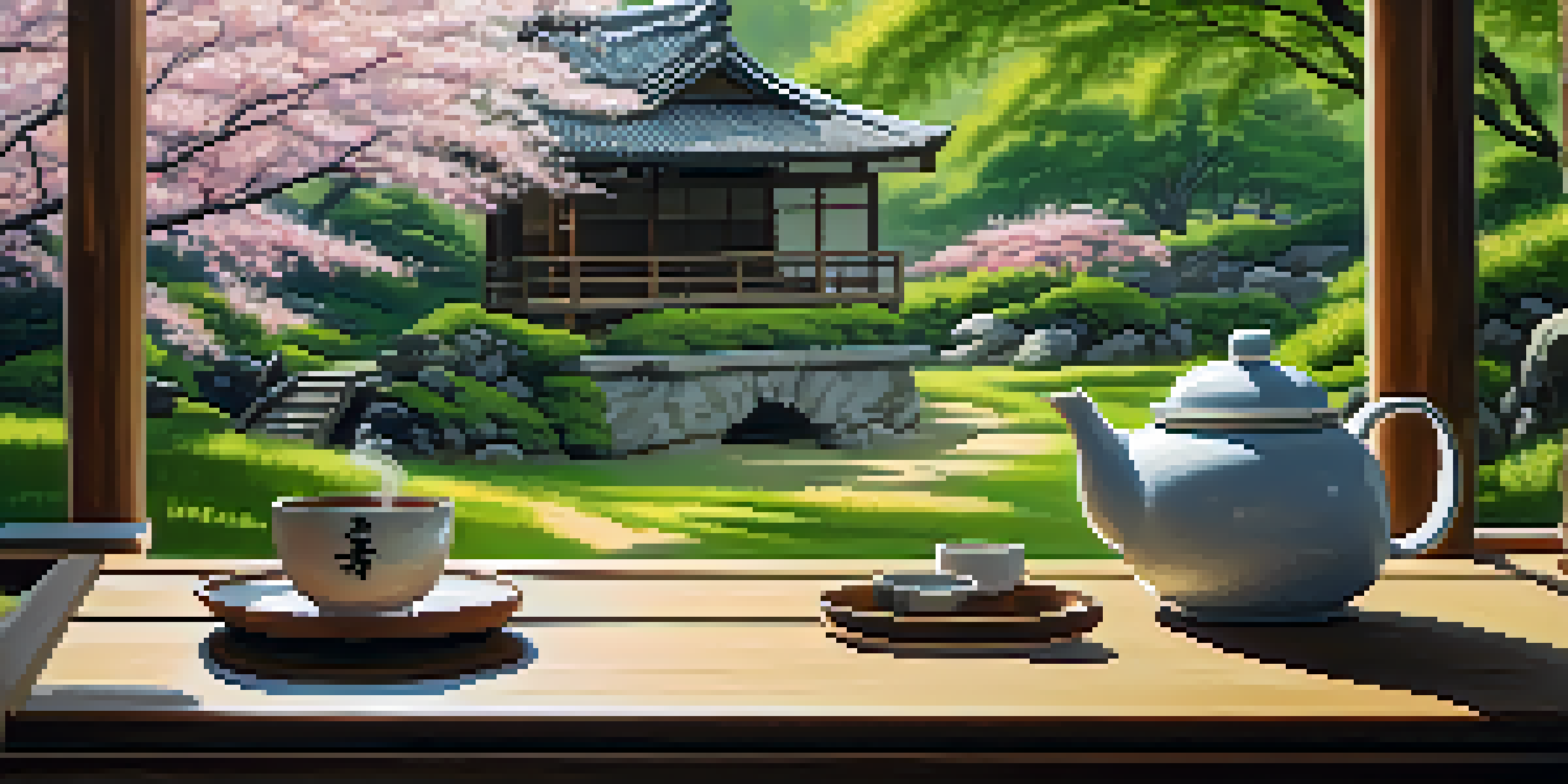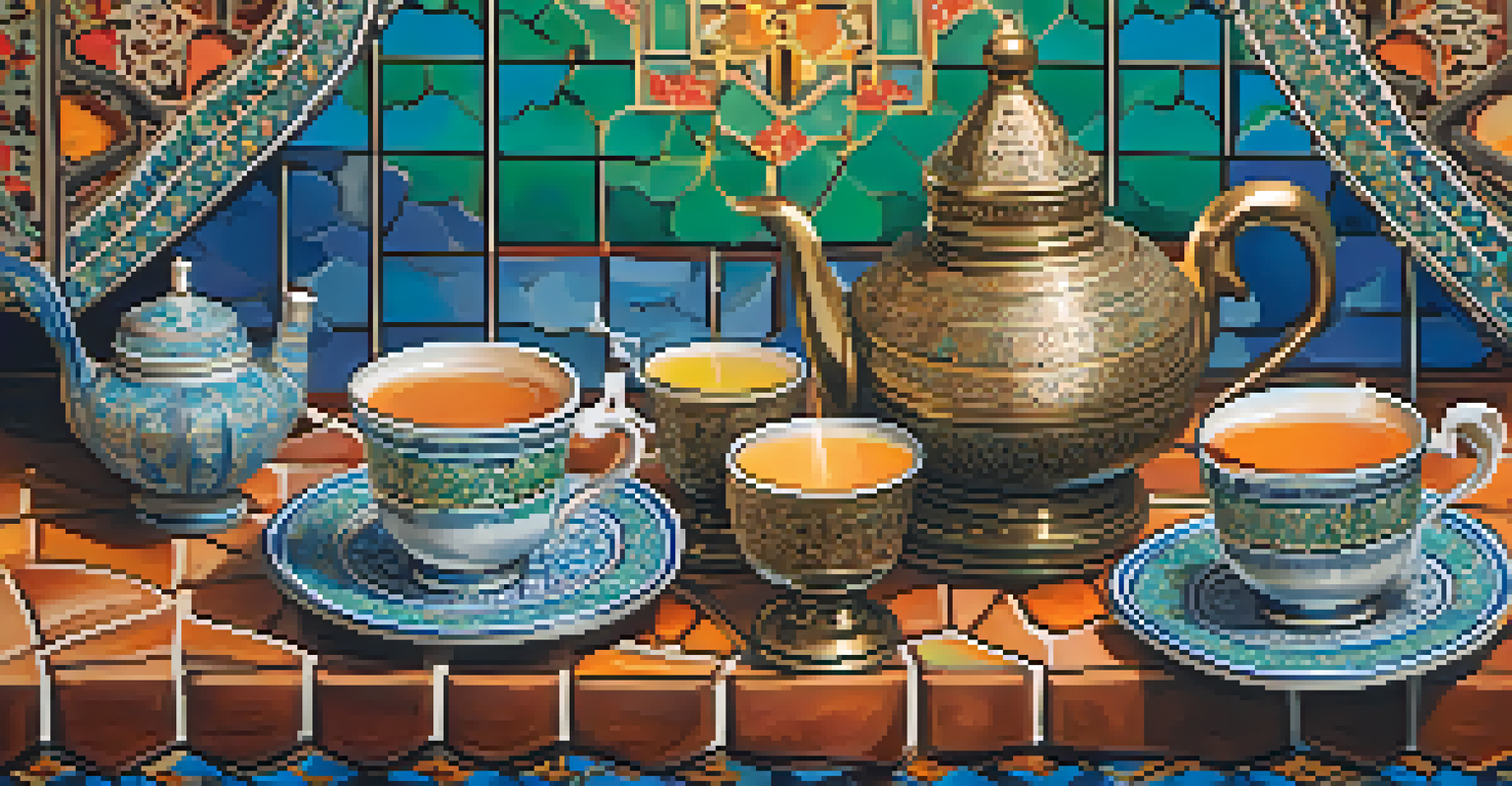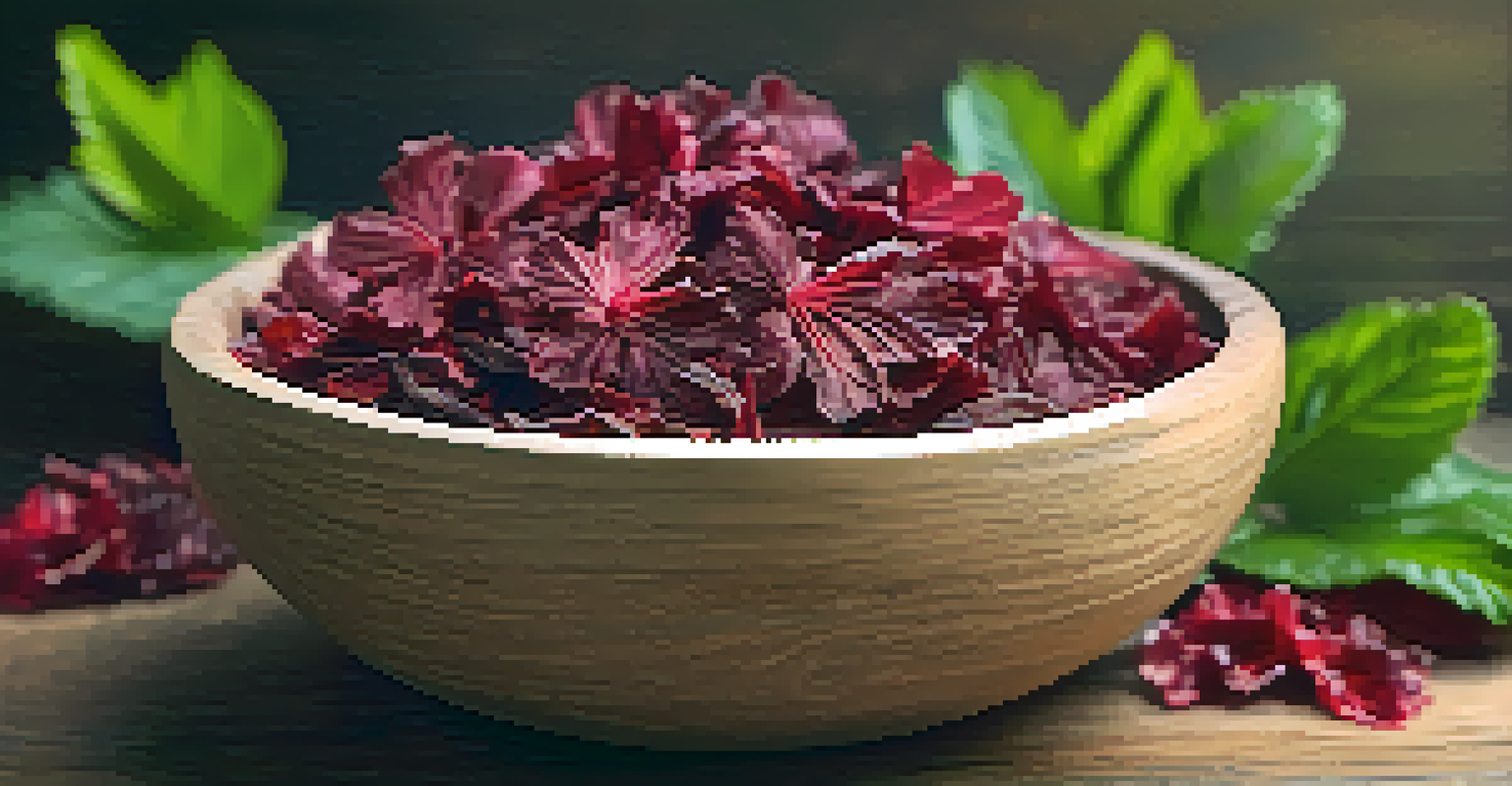Herbal Tea Traditions: A Cultural Journey Through Time

The Origins of Herbal Tea: A Historical Perspective
Herbal tea has roots that stretch back thousands of years, with ancient civilizations using plants for both nourishment and healing. From the Egyptians who brewed chamomile to the Chinese who favored ginseng, these early herbal concoctions were often seen as medicinal elixirs. It’s fascinating to think how these traditions have evolved, yet the core belief in the power of nature remains unchanged.
Herbal medicine is a very old and respected tradition, but we don't want to be stuck in the past. We want to move forward in a way that respects the past but also embraces the future.
In many cultures, herbal teas were not just beverages but an integral part of spiritual practices and rituals. For instance, the Indigenous peoples of North America used various herbs in their ceremonies, highlighting the connection between nature and spirituality. This sacred relationship underscores the deep respect that different cultures have for the plants they use.
As trade routes expanded, so did the knowledge and appreciation of herbal teas. The Silk Road, for example, facilitated the exchange of herbs and recipes between regions. This blending of traditions enriched the herbal tea landscape, creating a tapestry of flavors and practices that we continue to enjoy today.
Cultural Significance: Herbal Tea Around the World
Herbal tea isn't just a drink; it's a reflection of cultural identity and history. In Morocco, for example, the ritual of preparing mint tea symbolizes hospitality and friendship. The elaborate process of brewing and serving the tea often becomes a social event, fostering connections among family and friends.

Similarly, in India, chai—a blend of black tea with spices and herbs—holds a special place in everyday life. It's more than just a beverage; it's a comforting ritual, often shared among loved ones. This highlights how herbal teas can serve as a bridge between generations, linking the past with the present.
Herbal Tea's Rich Historical Roots
Herbal tea has a deep historical significance, with ancient civilizations using plants for both nourishment and healing.
In Japan, herbal teas like mugicha (barley tea) are enjoyed for their refreshing qualities, particularly in the hot summer months. These traditions not only offer a taste of the culture but also embody a lifestyle that values harmony with nature, emphasizing the importance of seasonal ingredients.
Health Benefits: The Science Behind Herbal Teas
Herbal teas are often celebrated for their health benefits, and for good reason. Many herbs, such as ginger and peppermint, have been studied for their potential to aid digestion and soothe ailments. This blend of tradition and science creates a compelling narrative that attracts both tea lovers and wellness enthusiasts alike.
Tea is the magic key to the vault where my brain is kept.
Furthermore, the antioxidants found in various herbal teas can contribute to overall health by combating oxidative stress in the body. For instance, hibiscus tea has been linked to lower blood pressure, making it a popular choice among health-conscious individuals. This connection between herbal teas and wellness continues to inspire new generations to explore their potential.
However, it’s essential to approach these benefits with a balanced perspective. While herbal teas can be a delightful addition to a healthy lifestyle, they are not a substitute for medical treatment. Understanding this distinction helps ensure that herbal traditions are respected and appreciated for their historical and cultural significance.
Traditional Herbal Tea Preparation: A Ritualistic Approach
The preparation of herbal tea is often considered an art form, reflecting the cultural nuances of each tradition. In many cultures, there are specific rituals associated with brewing herbal tea, turning what might seem like a simple act into a meaningful experience. For example, in Chinese culture, the Gongfu tea ceremony elevates the brewing process to a meditative practice.
In contrast, the preparation of herbal infusions in Western cultures can be more casual, often involving simply steeping herbs in hot water. Yet, even this straightforward method can be infused with personal touches, such as adding honey or lemon, showcasing individual preferences and creativity. This flexibility in preparation reflects the adaptability of herbal tea traditions.
Cultural Rituals Surrounding Tea
In many cultures, herbal tea serves as a vital ritual, symbolizing hospitality, connection, and a bridge between generations.
Regardless of the method, the act of preparing herbal tea often fosters mindfulness and presence, allowing individuals to slow down and appreciate the moment. This shared experience can create a deep sense of connection, whether enjoyed alone or with others, encapsulating the essence of herbal tea traditions.
Modern Trends: The Revival of Herbal Tea Culture
In recent years, there’s been a resurgence of interest in herbal teas, particularly among younger generations seeking natural alternatives to conventional beverages. This trend is reminiscent of the global shift towards wellness and holistic living, where people are increasingly turning to nature for health solutions. It's exciting to see herbal teas reclaim their place in daily routines.
Social media has played a crucial role in this revival, with influencers and wellness advocates sharing their favorite herbal blends and recipes. Platforms like Instagram and TikTok are filled with colorful images and creative brewing methods, making herbal tea more accessible and appealing to a broader audience. This digital age has transformed how traditions are shared and celebrated.
As consumers become more aware of sustainability and ethical sourcing, many are seeking out herbal teas from small farms and local producers. This shift not only supports traditional practices but also encourages a deeper appreciation for the origins of our food and drink. The marriage of tradition and modernity creates a vibrant landscape for herbal tea culture.
Herbal Tea and Sustainability: A Growing Concern
As the popularity of herbal tea continues to grow, so does the conversation around sustainability. The sourcing of herbs is crucial, as overharvesting can threaten certain plant species. It’s essential for consumers to consider where their herbal teas come from and to support brands that prioritize sustainable practices.
Many herbal tea producers are now focusing on organic farming methods, which not only protect the environment but also enhance the quality of the tea. By choosing organic herbal teas, consumers can enjoy their favorite brews while contributing to the health of the planet. This conscious choice embodies a growing commitment to sustainability.
Sustainability in Herbal Tea Sourcing
The growing demand for herbal tea emphasizes the importance of sustainable sourcing and organic farming practices.
Additionally, community-supported agriculture (CSA) programs and local herb gardens are gaining traction, allowing individuals to connect directly with the sources of their herbal teas. This hands-on approach fosters a deeper understanding of the plants and their benefits, reinforcing the bond between people, nature, and the traditions that define herbal tea culture.
Conclusion: The Enduring Legacy of Herbal Tea Traditions
Herbal tea traditions have traveled through time and across cultures, leaving an indelible mark on our collective history. From ancient rituals to modern-day wellness trends, these practices remind us of the power of nature and the importance of connection. The simple act of enjoying a cup of herbal tea carries with it stories of resilience, healing, and community.
As we navigate our fast-paced lives, taking a moment to appreciate the cultural significance of herbal tea can bring us back to our roots. It invites us to slow down, savor the flavors, and engage with the traditions that have shaped our world. In this way, herbal tea is not just a beverage; it's a journey through time and culture.

Ultimately, the enduring legacy of herbal tea traditions lies in their ability to adapt and thrive in a changing world. By embracing both the historical and modern aspects of herbal tea, we ensure that these cherished practices continue to be celebrated for generations to come.